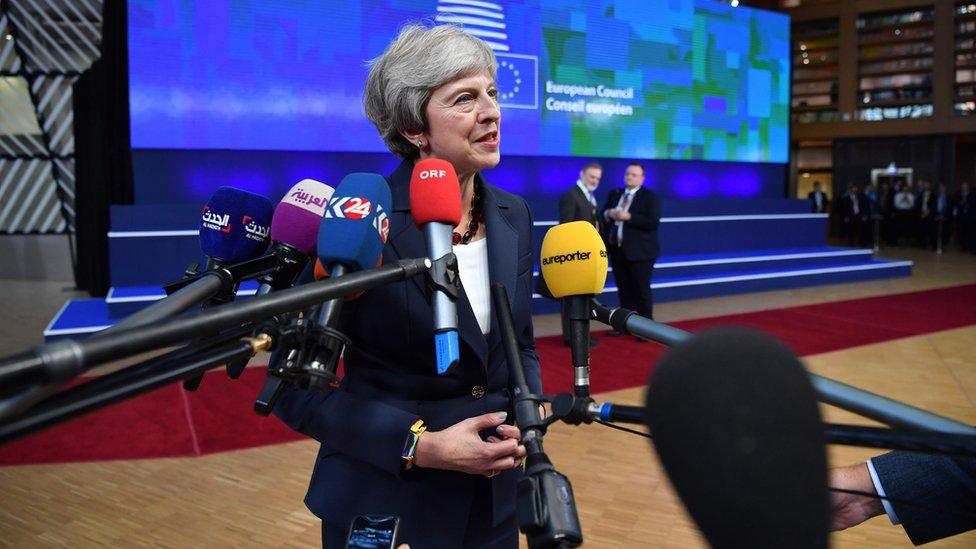Brexit: Row erupts over Commons 'meaningful vote'
- Published
- comments
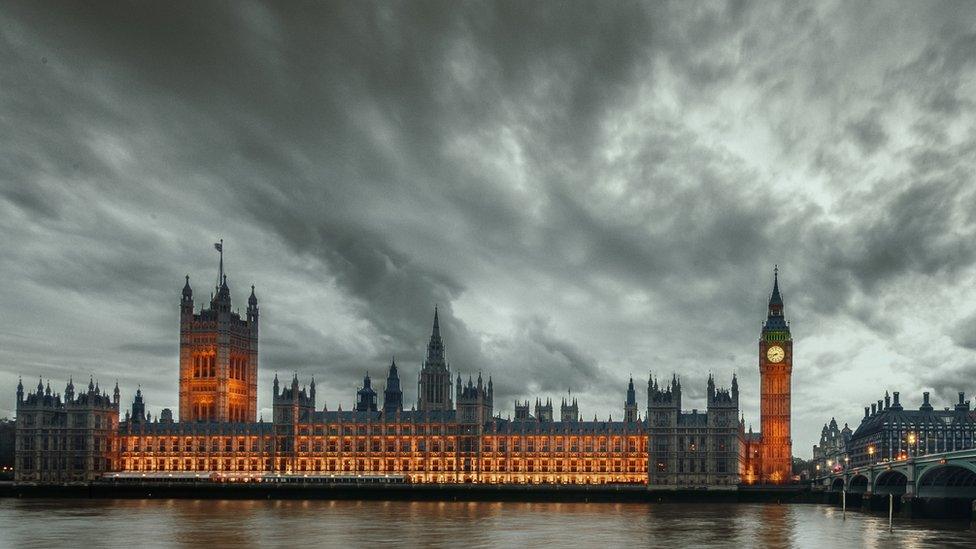
Brexit Secretary Dominic Raab has riled some MPs after appearing to suggest Parliament might not get a so-called "meaningful vote" on any deal.
Some MPs want the right to amend whatever Theresa May eventually comes back with, but Mr Raab hinted it may only be a "take it or leave it" choice.
The BBC's Laura Kuenssberg says it's a "big fat row waiting to happen".
Labour Leader Jeremy Corbyn accused Mr Raab of "arrogance" and said MPs must have the chance to amend the deal.
The argument erupted as Theresa May struggled to make progress with the EU in Brussels on Wednesday.
Dominic Grieve, the Tory MP who led the calls for a meaningful vote, demanded a "very rapid assurance" from the government that the Commons will be able to amend any potential Brexit deal.
Commons leader Andrea Leadsom, who is in charge of scheduling debates, said "anything other than a straightforward approval of the deal" would create uncertainty for businesses and might mean the government can't ratify it.
What is the meaningful vote?
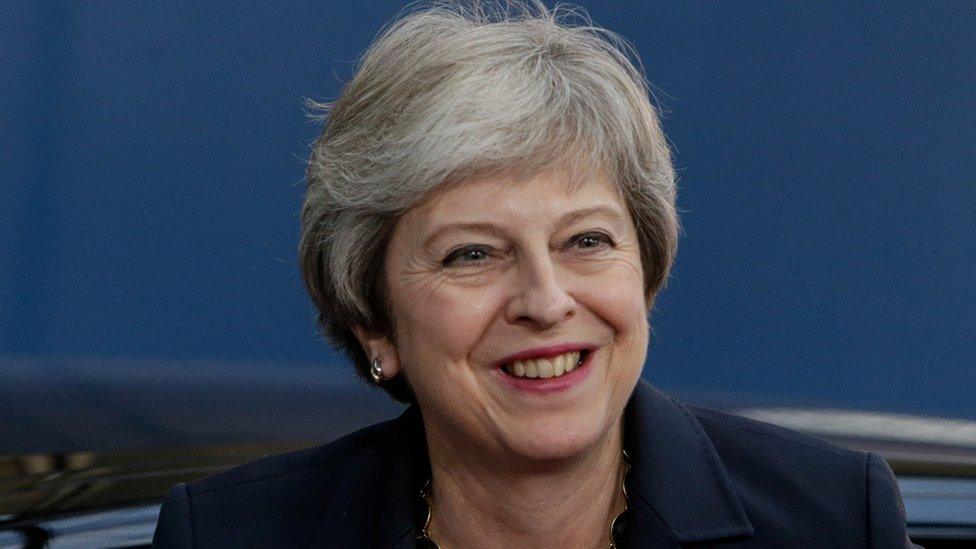
Theresa May brokered a deal with Tory rebels in June
In June, the government's EU (Withdrawal) Bill was set to be defeated in the House of Commons by a group of Tory rebels.
They demanded Parliament get the final say on any deal brokered with Brussels - and have the power to send the UK's Brexit negotiators back to the table to try again.
Downing Street complained this would "bind" the prime minister's hands, and change the constitutional balance between government and Parliament in foreign policy and treaty matters.
But leader of the rebels, former Attorney General Dominic Grieve, said the "sovereignty of Parliament" had to be acknowledged.
A compromise was eventually reached - after assurances were accepted by would-be rebels that MPs would have a meaningful say. Both sides claimed victory.
What has Dominic Raab said?
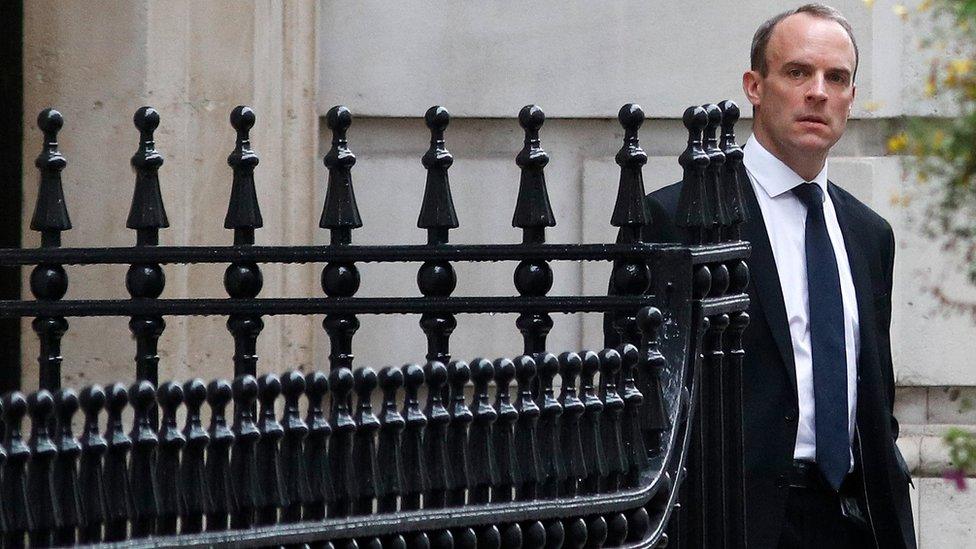
In response to a letter, external from Tory MP Charles Walker, who chairs the Commons Procedure Committee, Mr Raab indicated the vote should be a simple Yes-or-No verdict on whatever deal was brought back.
"Anything other than a straightforward approval of the deal will bring with it huge uncertainty for business, consumers and citizens."
Is it deal or no-deal basically then?
Well, No 10 sources have insisted the Commons motion on any final Brexit deal would be amendable, but the BBC's political editor says it's possible the government might ask MPs to approve or reject a deal before they have a chance to amend it.
How have MPs reacted?
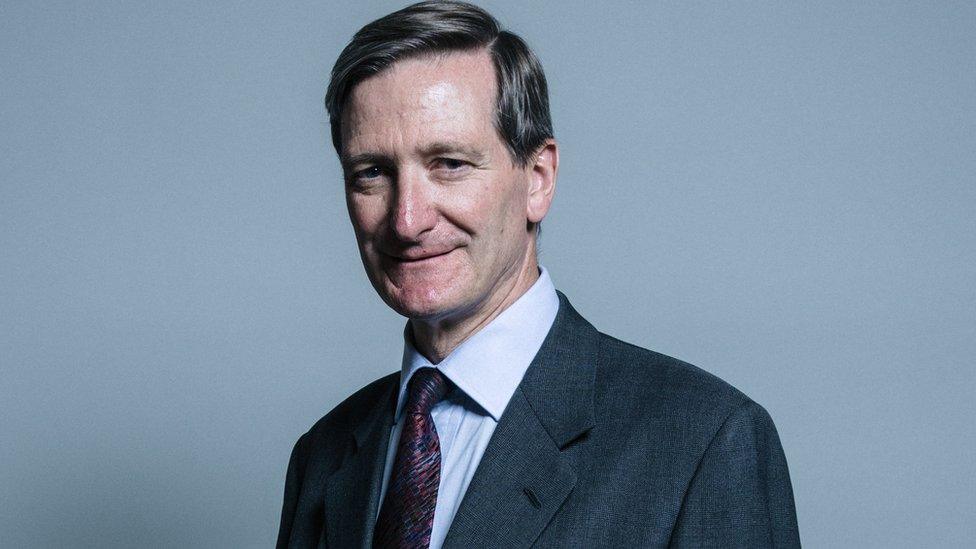
Leader of the Tory rebels Dominic Grieve has demanded a "very rapid response" from Downing Street
Mr Grieve has demanded a "very rapid" clarification from Downing Street, saying the Brexit secretary's letter was "completely incompatible" with what the government had told him in the summer.
Staunch Remainer Ken Clarke told BBC Newsnight the government "won't get away" with a "take it or leave it vote".
"Parliament is going to insist on using its proper authority," he added.
Fellow Conservative Anna Soubry urged MPs to "stand up to this outrage".
Labour MPs, too, are unhappy. Leader Jeremy Corbyn described Mr Raab's letter as "a supreme piece of arrogance.
"He writes to Parliament - writes, rather than turns up - and says you can only have one vote on what we put forward.
"Sorry, we're all elected parliamentarians, there's 650 of us, we all have ideas.
"Surely, there should be a serious and proper debate and the opportunity to amend what the government has put forward."
Commons leader Andrea Leadsom insisted MPs would get the final say on whether the motion can be amended, but she urged them to "consider the question that will, in reality, be before the United Kingdom and that is whether or not to accept the deal that the government has negotiated with the European Union".
Pressed to say whether or not MPs could amend the deal, Mrs Leadsom said: "Anything other than a straightforward approval of the deal would lead to great uncertainty to businesses and citizens because any changes might mean that the government is not in a position to ratify the deal."
Allow X content?
This article contains content provided by X. We ask for your permission before anything is loaded, as they may be using cookies and other technologies. You may want to read X’s cookie policy, external and privacy policy, external before accepting. To view this content choose ‘accept and continue’.
- Published17 October 2018
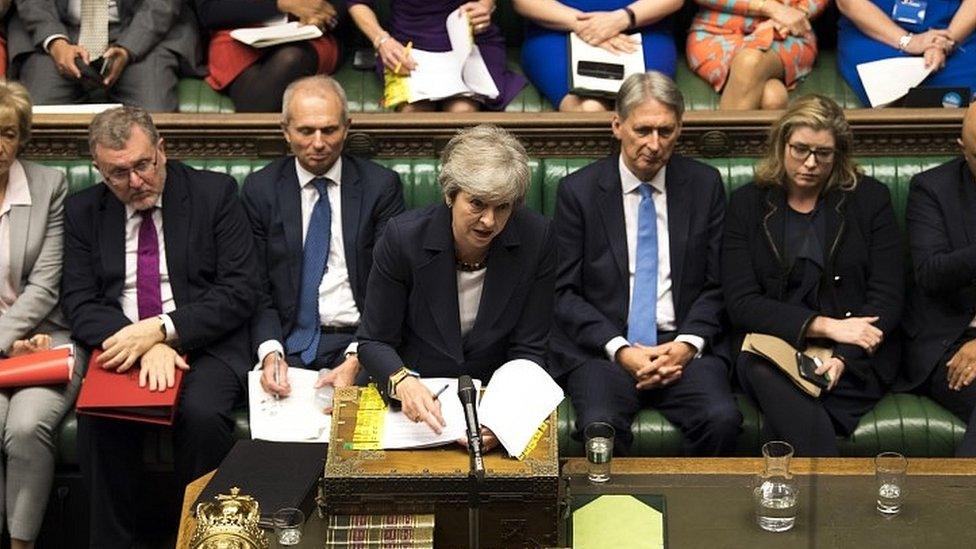
- Published17 October 2018
